A single woman in Florence: An American expat describes the ups and downs of living in Tuscany’s crown jewel
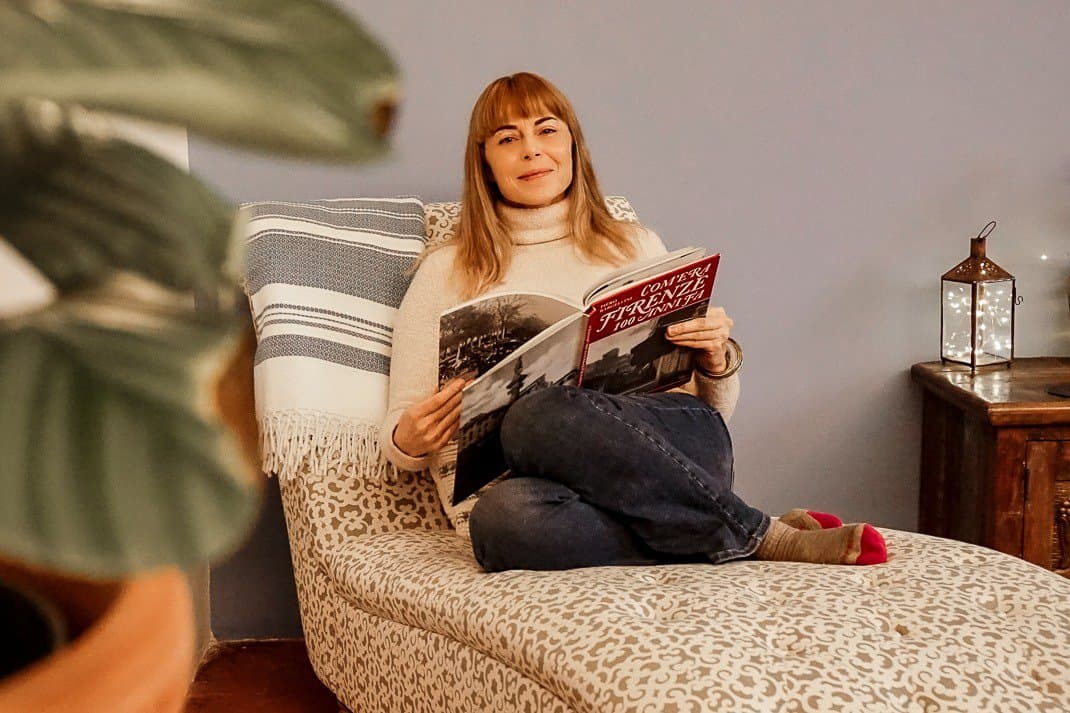
FLORENCE, Italy – I’ve known Chandi Wyant since the 2000s when we both lived in Colorado and spent our time thinking of ways to move back to Italy. Her love affair with Florence is a little like mine with Rome.
Originally from Santa Cruz, Calif., she lived in Florence as a college student in the 1980s and after numerous return visits, she moved to Florence in the early 2000s, organizing weddings for foreigners. She returned to California in 2004 to get a masters degree in Florentine Renaissance history. She moved back to Italy in 2017, first to Lucca for a year and a half, all the while looking for real estate in Florence.
She finally bought a place in early 2019. She has lived in Florence off and on for a total of eight years, using her masters degree and tour guide license in her latest stint to work as a tour guide.
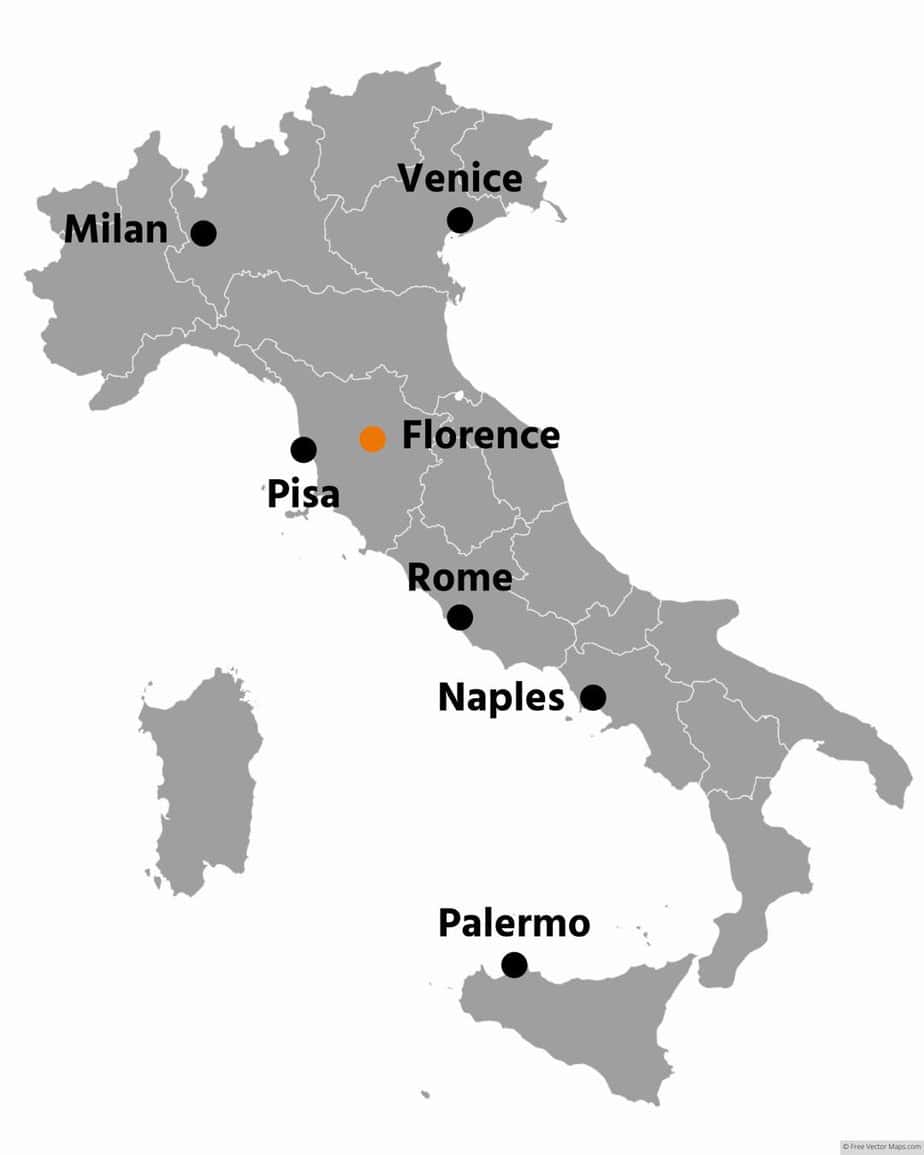
For two years she renovated her 115-square-meter (1,235-square foot) apartment in the lovely, lightly trodden San Frediano neighborhood. We’ve shared our joy of living in this wonderful country and our frustration with its equally confounding flaws.
She transformed her apartment into a beautiful home which she can rent out when she’s occasionally back in California. I visited her in Florence the last week in December and understood the appeal. I’ve been to Florence many times. I was never a big fan until Chandi showed me around her neighborhood. Visiting right after Christmas, the lights shined even brighter through the cold night on Ponte Vecchio, maybe the most beautiful, iconic bridge in Italy. The palaces filled with some of the world’s most famous masterpieces and the Duomo beamed like something out of a movie set.
We walked about 20 minutes from her home and were on a hill at San Miniato al Monte, a Benedictine monastery built in 1018 with a jaw-dropping view of the city.
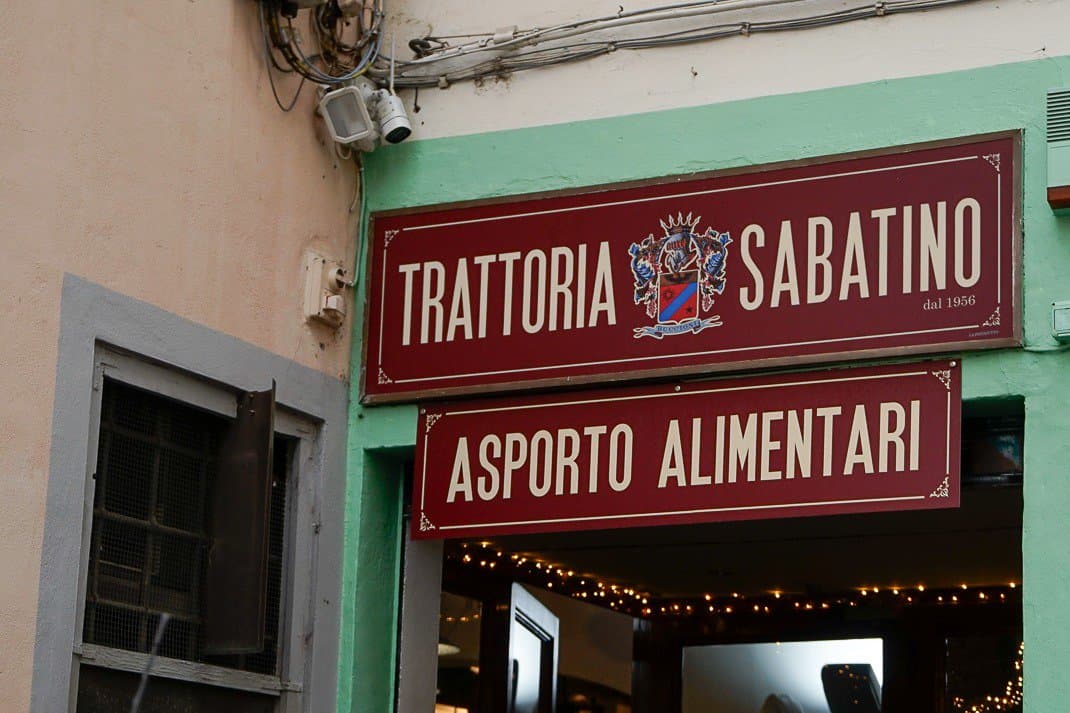
San Frediano is a charming neighborhood just outside the plethora of tourist sites. A giant stone archway still standing from the 1300s separated San Frediano from Centro Storico. No tourist was in sight. A long line stood outside Trattoria Sabatino, which has been serving up pasta since 1956 and where you can still get a steaming plate of it for €4.
Her apartment is lovely. It has two bedrooms, a huge kitchen and a spacious living room. Brass fixtures grace the bathroom featuring a big shower. Pretty blue and white tile behind the stove give it a very Tuscan feel.
But life in Florence isn’t all moon-lit walks along the Arno River and Chianti Riserva under a spring sun. It can be frustrating. It can be broiling. It can be lonely. It took her two years to renovate her home from its crumbling condition and black and red decor.
“It looked like a brothel,” she said.
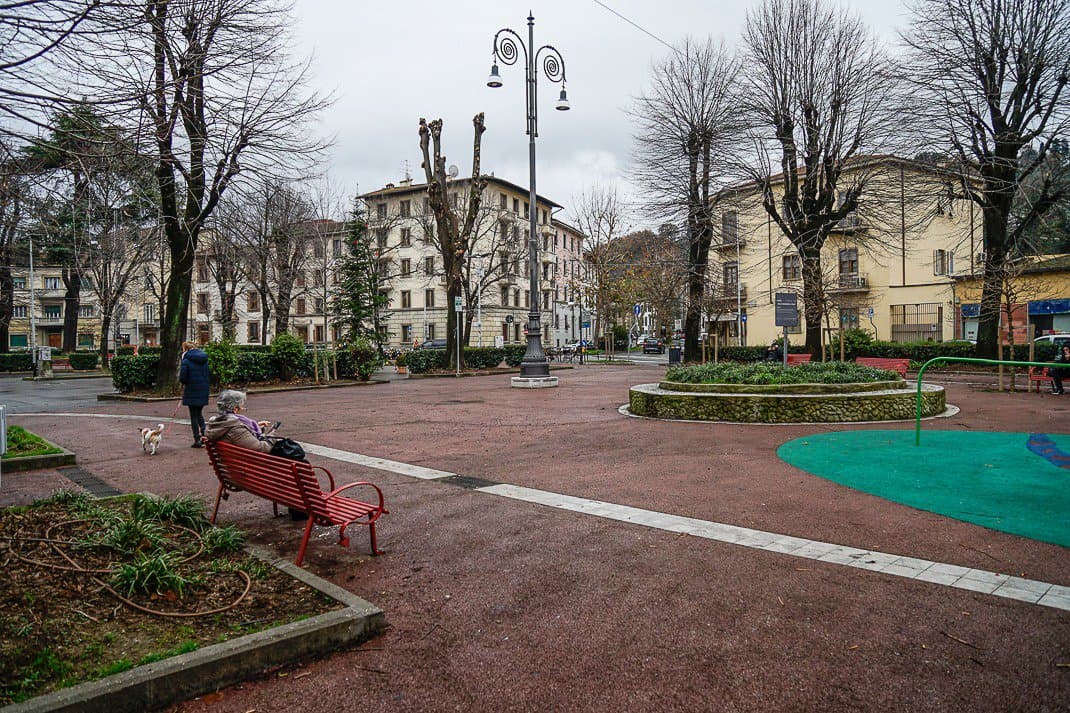
Wires hung everywhere. Broken glass littered the entryway. Workers pawing at her didn’t help the renovation’s progress much, either.
We had another reason to visit. In 2017 Chandi wrote a successful travel book about her pilgrimage along the Via Francigena trail called Return to Glow: A Pilgrimate of Transformation in Italy. In her 50s, she has been an inspiration and learned mentor for my upcoming book The Cappuccino Chronicles: An American Journalist’s Decade in Rome.
Last week I caught up with her again by phone in California where she was getting some dental work done. The conversation below was edited for space.
Q: How’d you end up living in Florence?
A: My relationship with Florence started in the 1980s when I was 19 and budget backpacking around Europe. Out of everywhere I went, Florence and the country of Italy stood out the most. I was particularly enamored with the Italian language. I hadn’t really heard it until that trip. I became determined to learn the language after that initial visit, a total of about a month. I had not started university yet and decided to go back to Florence the following year and do an intensive language course for six months. I did that before I started the university. Ever since the ‘80s I’ve been going back to Florence whenever I can, keeping up the language, and Florence remained endlessly fascinating for me all this time. More recently seven years ago I decided to move there and try my luck actually living there longer term.
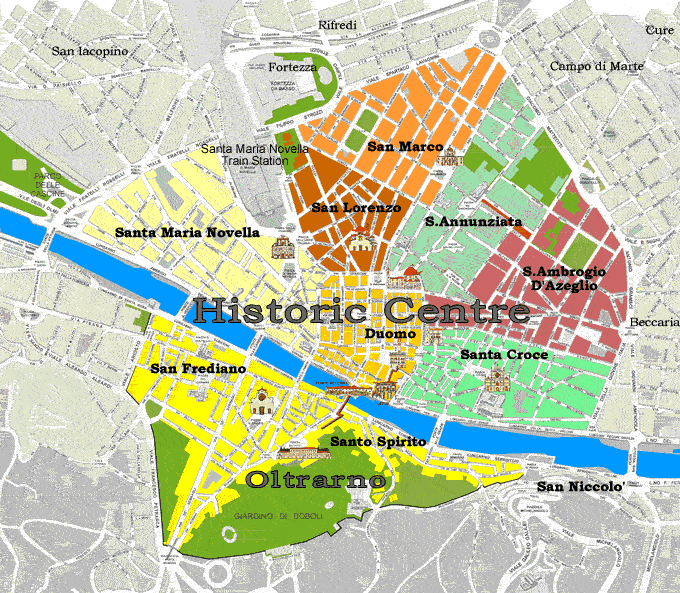
Q: Is living in Florence better or worse than visiting?
A: The two things are extremely different. Visiting, especially if you have an ample budget, is a dream. Visitors rarely encounter the dreaded bureaucracy. It doesn’t matter if they don’t speak italian. They get to eat out every day. They’re allowed to rent a car. Visitors get a great sense of la dolce vita. Living after a year of residency you can no longer use your American driving license. You can no longer rent a car. Suddenly you don’t have the freedom to head from Florence into the Chianti zone for a few days. If you want to drive you have to take the challenging and confounding driving test, in Italian, with all the trick questions.
Some other things about living there, you have to pay taxes. You have to go to appointments at the police station to keep up with your residency. Living there you learn what you’re made of. You confront the bureaucracy over and over without screaming. You find words in Italian to discuss the intricacies of your backed-up toilet with the plumber. You argue in Italian with Telecom Italia, the most nefarious company I’ve ever encountered.
So living in Italy is best if you’re comfortably retired. Needing to support yourself in Italy is rough. If you need to work, you’re much better off in the U.S. If you have a cushy retirement then you can enjoy la dolce vita and even pay someone to slay the bureaucracy for you.
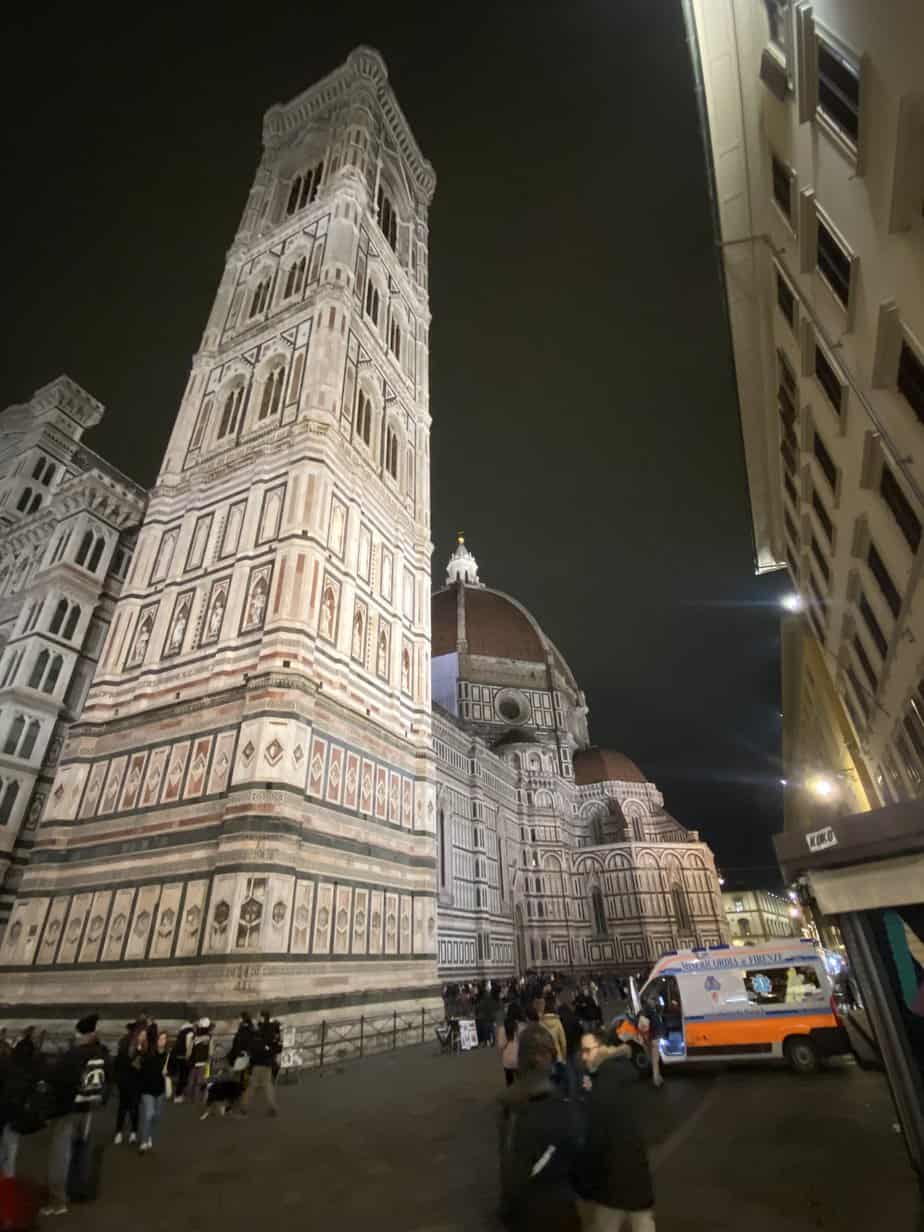
Q: How difficult is it to find housing in Florence?
Very hard. I posted in some Facebook groups that were specific for people living in Florence. I was trying to to avoid using an agency. Agencies take high fees. That’s one way to go. I tried to avoid that. I did find housing through connections but it’s very hard to find something that’s attractive and affordable. So many rentals are dumps. Long-term housing is getting harder and harder to find. Because of AirBnBs. All of these people with apartments want to do short-term rentals.
Q: How long did it take you to find housing?
A: Finding a rental through connections and avoiding the agency. As far as finding an apartment to purchase, I looked for at least a year, probably more. I was looking at Italian real estate sites online. I have a blog post that outlines that experience. I describe some of the challenges and differences between U.S. realtors and Italian realtors.
Q: What’s the difference between the real estate situation in the U.S. and Florence?
A: Overall, I would much rather go through a real estate process in the U.S. where you choose a realtor you really click with and they really have your back. In Italy you are forced to use whatever realtor already assigned to the place you want to buy. And that realtor is working for the seller and is supposed to work for you as well. So they don’t have your back in the same way. They are notorious – and I hate to say this (because) subsequently to buying my place I’ve met some Italian realtors who are conscientious and good – all my Italian friends say they don’t enjoy working with realtors and don’t do much work for you in the process. I found it more challenging than it is in the U.S.
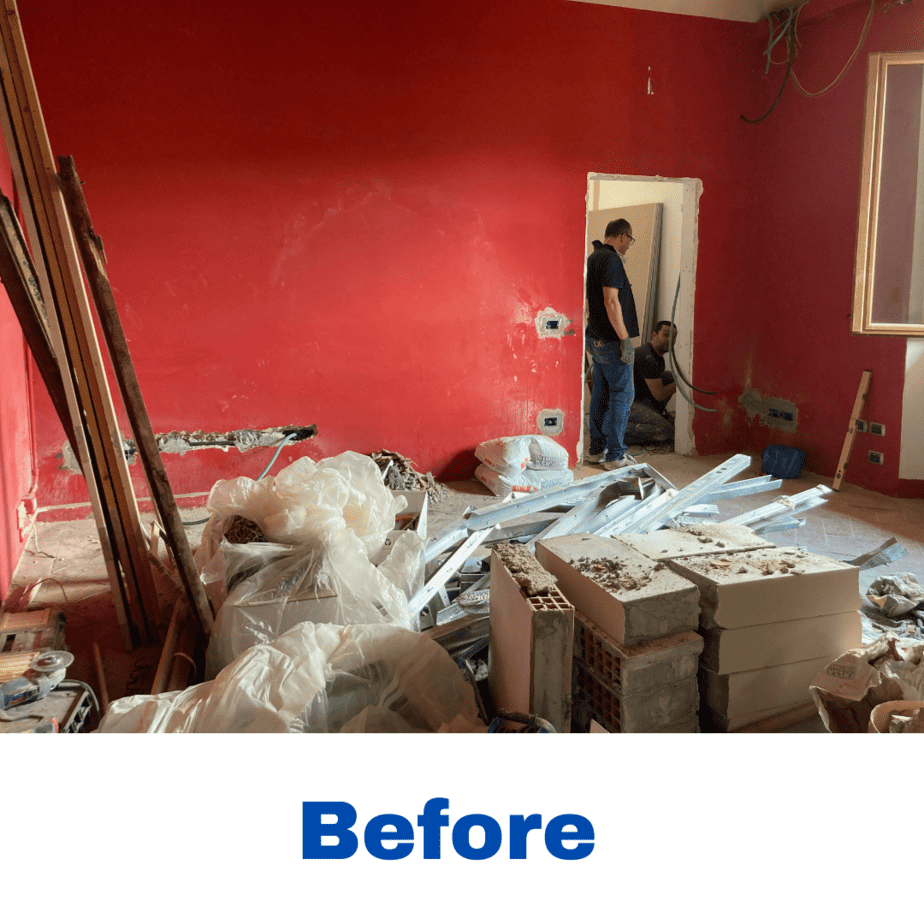
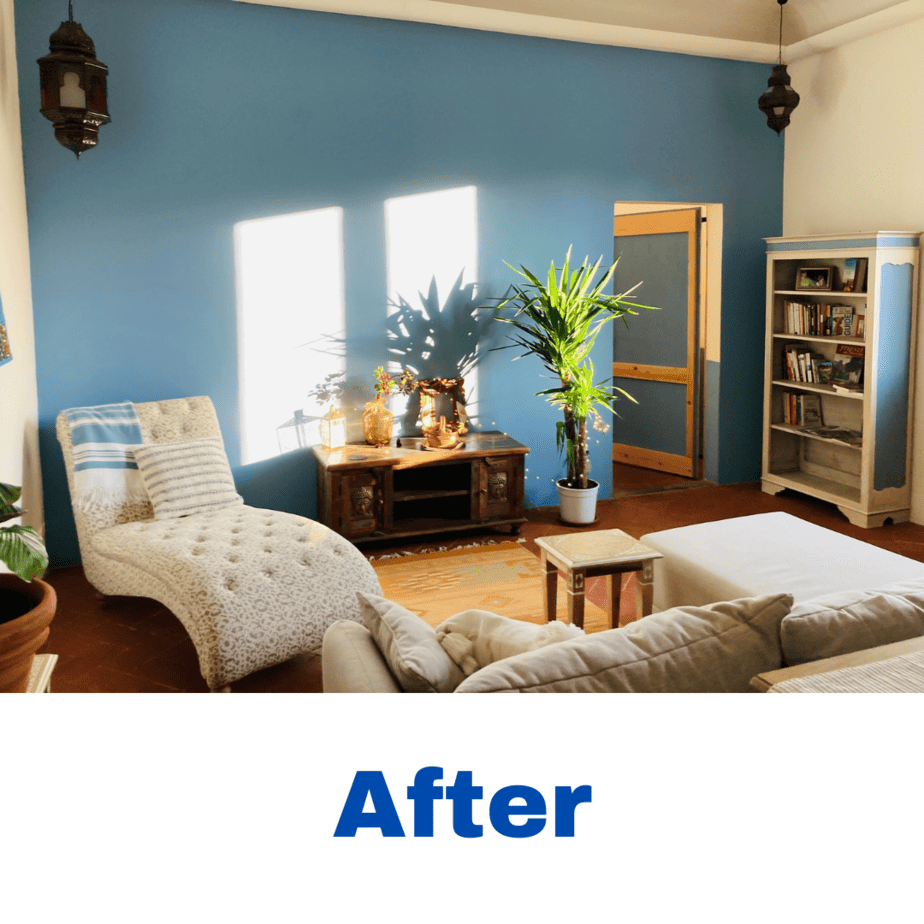
Q: Can you put into words how difficult the renovation was. I saw the riveting videos on your website.
A: It was such a long process with so many aspects to it. The hardest part was being a single woman doing it. I don’t want to cater to a sexist situation. But the reality is if I had a man at my side I would’ve been treated respectfully. A few of the workers did treat me respectfully but the ones who didn’t, their actions were so disturbing and violating that it affected my mental health and this results in my stance: Don’t do it if you’re a single woman.
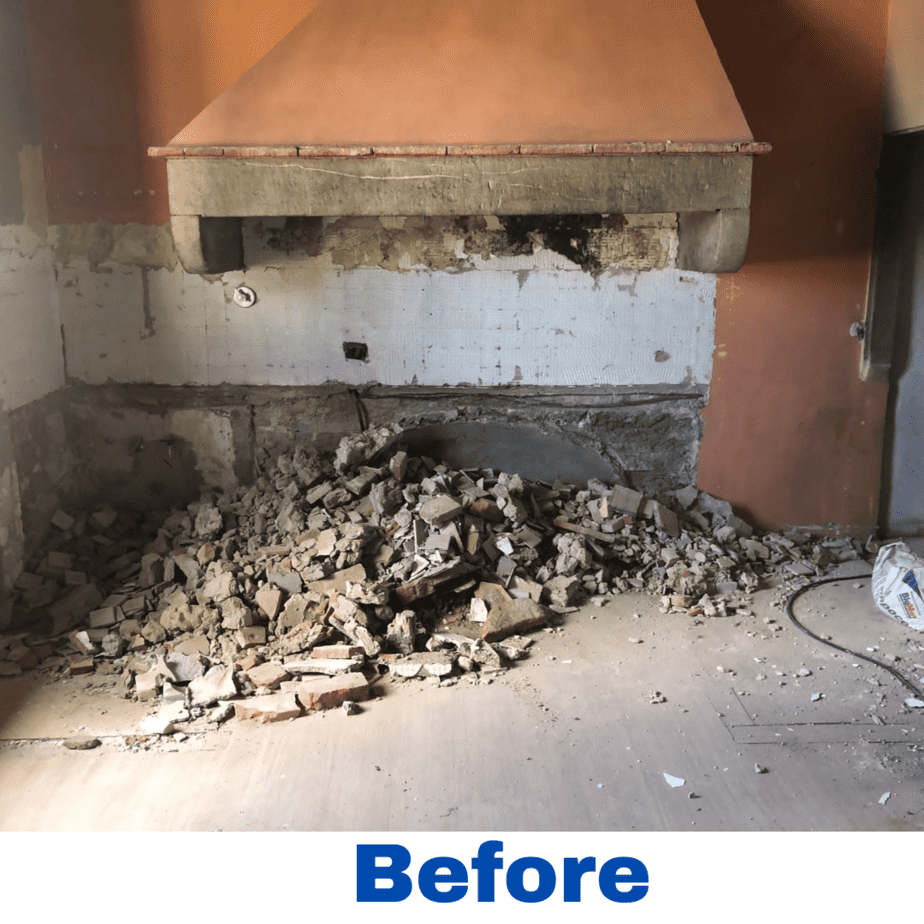
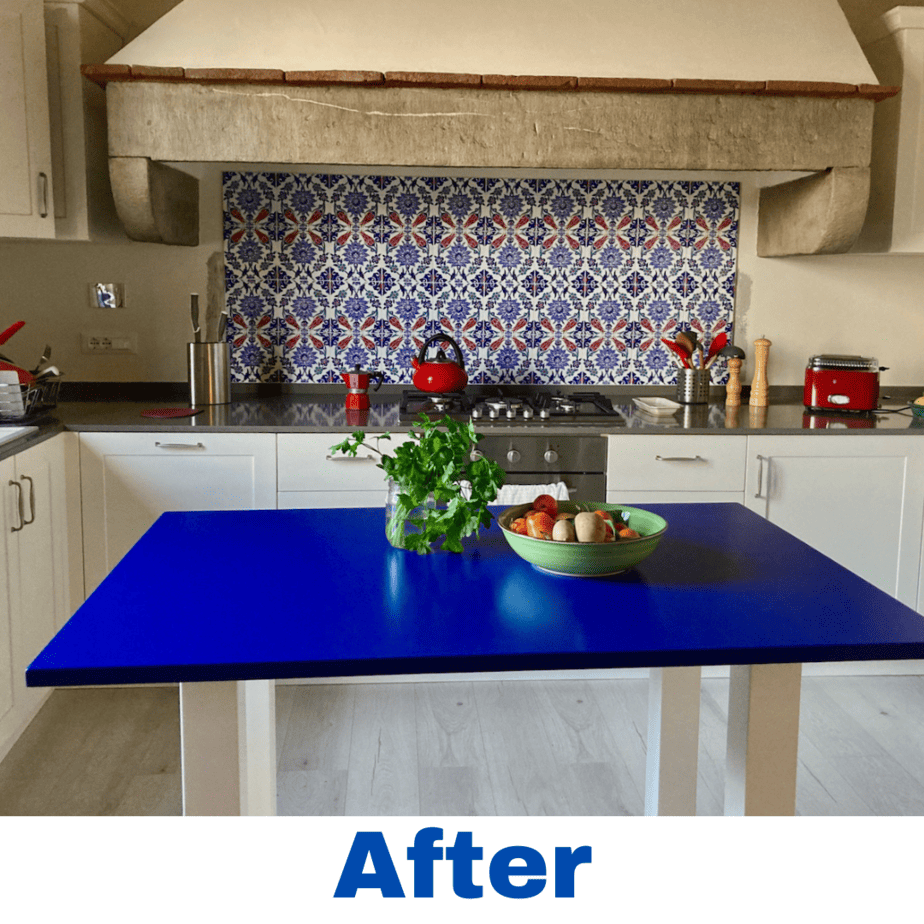
The most disturbing thing was two different times a worker when I was alone in the house with him made a pass at me but in a scary way. Both times the guy didn’t use his words. He didn’t say, “Hey, I would like to, you know, go out for a spritz with you.” Or “Hey, I fancy you. Do you feel the same?” and let me simply respond with words and if my response is no then he can just say too bad and walk away. In both cases they didn’t use words. They were just launching onto me and grabbing and really not hearing my no. That happened twice.
Other more mild things that were frustrating and annoying, but that almost every time a new worker walked in and walked around and saw only me, there was this moment of pausing and looking at me in this very puzzled way, almost every single one asked, “Are you married?” Sei sposata? My marital status has nothing to do with anything. You’re here to lay tile. I don’t need to tell you. It happened so much, I finally said “Why are you always asking this? Stop!”
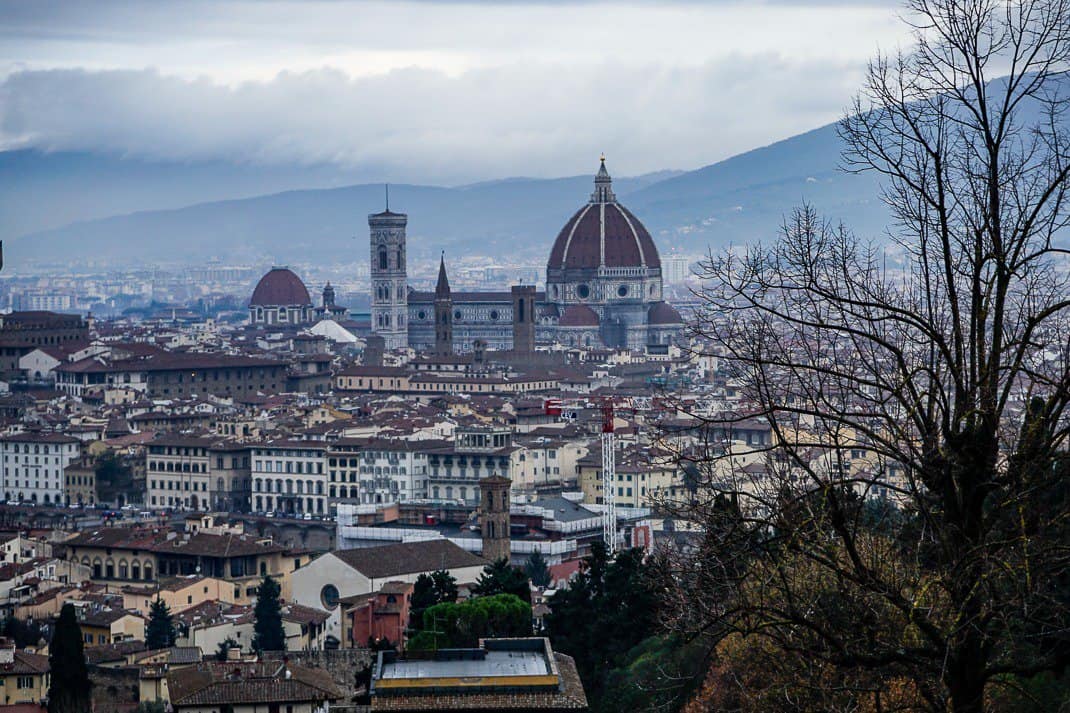
Q: Describe your neighborhood, San Frediano.
A: My neighborhood is wonderful. The hills on the south side of the city can be reached in five minutes from where I live. I don’t have a car. Five minutes by foot I can access the hills which are great for walks. You’re immediately removed from the city on quiet roads with lovely vistas. I can take nice long walks for a couple hours in those hills. Additionally, the largest park in the city is right across the bridge. I like to bike over there and just biking down the length of that park is good exercise because it’s really long. At the end of the park you can access trails that continue down the river.
The other thing I really like about the neighborhood is there are lots of excellent restaurants and wine bars that cater more to locals than of tourists. I love the huge porta (door) that remains from the city walls that were completed in the 14th century. They were mostly pulled down in the 19th century, but a section remains in my neighborhood along with a really impressive huge porta.
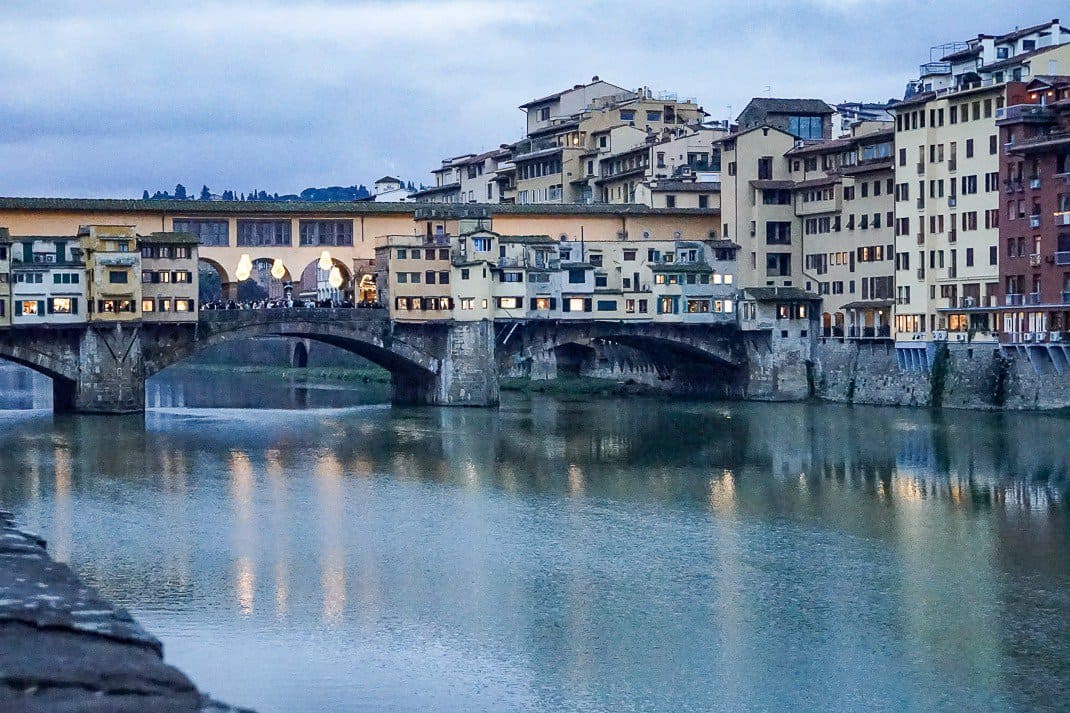
Q: How far are you from Florence’s main sites?
A: You can cross the river and get into the center in 20 minutes. Maybe 30 depending on what part of the center you’re going to. It’s very easy to walk or bike. As soon as you cross the river from where I am there’s a bike path on the Lungarno. They’ve sectioned off part of the road just for bikes so it’s quite pleasant biking over to the center.
Q: Is it easy to make friends in Florence?
A:I have some friends in Florence who I treasure, who go back to my other iteration living there in the early 2000s. And I often meet like-minded women from English-speaking countries who have moved to Italy in their 50s, and with whom I enjoy connecting. I also appreciate that Florence is firmly on the route of visitors– so many people come through Florence — people from my childhood with whom I lost touch suddenly message me because they are coming to Florence, and they heard I’m living there. So it can turn out that I connect with more people from my past when I’m in Florence. I guess I am more interesting when I live in Florence than when I live in California! (Laugh). I think if I was living in Puglia which is harder to get to, I would have fewer people from home coming through.
What can be hard about expat life is that expats come and go. Sometimes you want that connection with expats where you can just use your language and be completely relaxed because you’re not trying to have a relationship in a language that isn’t yours. Sometimes you just need that. You might connect well with expats but they might leave. With Italians, the best way to integrate is to move over there when you’re young, maybe you’re getting married and having children. You’re meeting other people with children. That’s really a good way to develop a community. If you move as a single woman in your 50s it’s a little harder. There is a stereotype where some Italians have said to me, if you’re single, Italian women wonder are you there to take their man. Families don’t really invite you over because they’re not quite sure how to place you. They have an easier time placing you if you’re there as part of a family unit.
Q: What’s the best part about living in Florence?
The best part is the high caliber of art and history at my fingertips and how pedestrian the historic center is. That kind of covers the best things for visitors as well. But that is unique about choosing to live in Florence. There’s a lot of cities in the world where the historic center is not anywhere near as pedestrian as Florence is. Very few cities in the world have such a high caliber of art and history.
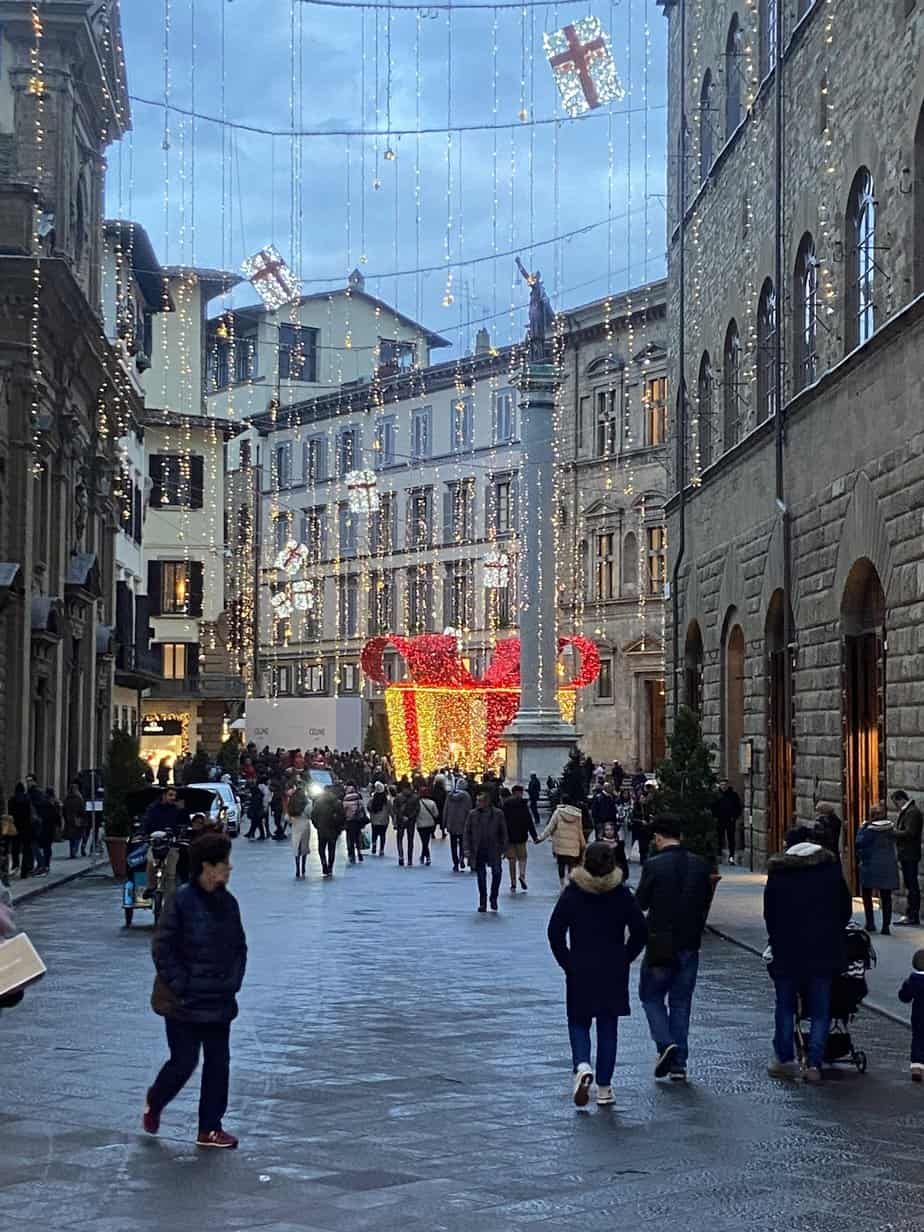
Q: Do you ever find yourself taking it for granted?
A: There are things you get used to. I had a friend visiting me over Christmas and we were walking through Piazza del Duomo, that’s a big wow in Florence and she was having the big wow moment and she said, “My God! Do you just get used to this?” because I was just walking through like I was walking through a generic American mall or something. Yeah, I suppose there are times when I take it for granted. For the most part, I don’t. I’ve had eight Christmases in Florence, counting when I was there in earlier years, and then the last six in a row. I am in awe every time. It does not get old how beautiful Florence is at Christmas. I’m going around with wide-eyed appreciation at the beauty every time.
Q: What’s the worst part about living in Florence?
A: The smoking. I can’t stand it. I’m just very Californian in this way. In my hometown in California, even growing up there, even in the ‘70s, I never ran into people smoking. Even in high school in the ‘80s no one smoked. I walk around there and it is very, very, very rare having someone blow second-hand smoke on you in Santa Cruz, Calif. I just can’t get used to it. Expats say you get used to it. I don’t. I see people lined up on the narrow sidewalk outside a bar smoking. Of course you can’t smoke inside. And I’m walking down the street on a miniscule sidewalk and I have to pass this gauntlet of people smoking and I just can’t. I see it coming and I have to take a wide berth. I cross the street. It bothers me that much.
Q: What advice would you give people who want to move to Florence?
A: Come with a robust budget. If you need to work, realize salaries aren’t at all like in the U.S. They’re very low. And work is not plentiful. Inform yourself about the tax situation. These days there are dozens and dozens of Facebook groups about moving to italy. Join them and talk to others.
Q: What about retirees who want to move here?
A: I’m going to say if you don’t qualify for citizenship, you have to get a visa. After getting a visa once you’re in Italy there’s a process you have to go through I’ve written about in a series of posts on my website. Part of that process is you have to speak Italian at a certain level. You need to be prepared for that. It’s an integration process. Some questuras (police stations) aren’t on the up and up and won’t tell you to go do it. Others will. North Americans are moving to Italy more and more lately. A lot of them don’t speak Italian or struggle to learn it. But the ideal is you speak Italian or are good at picking up languages.
The other characteristic that bodes well is you have tenacity and prefer to choose courage rather than remain in a comfort zone. Remaining in a comfort zone is more like staying in the town where you grew up and it’s your language and it’s comfortable but you’re also intrigued by the idea of Italy. You feel Italy is calling to you. Some people simply do better in the comfort zone. If you’re one of those people who really believes in choosing courage rather than remaining a comfort zone and you have tenacity, those are characteristics that bode well.


March 5, 2024 @ 4:08 pm
Enjoyed this interview. Love her place! I know that area. Nice!! How scary that men were extremely forward. They think all american women want them. So wrong. Arrogant.
It’s sadly true about being a single woman over 50, in my case over 60, and difficulty making Italian friends. I saw my married American friends easily form a community in Italy. I made some friends with Italian widows. In south I found men to be disrespectful. Walking on a narrow sidewalk they would not move. I was forced to step down into street to pass. Definitely men feel above women. Interesting though the younger men were very polite. Probably thought of me like their nonna. Argggg.
March 5, 2024 @ 6:00 pm
The problem is most Italian men have a friend who had a wild weekend with some secretary from Santa Monica who wanted a fling with a sultry Italian lover. I have a friend whose American wife went crazy over Italian men when they moved to Italy.
March 5, 2024 @ 9:58 pm
Love this article, John. Even though I know Chandi (and you), it gave me a sense of her place and what it’s like to live in Florence that I didn’t have before. I’ve been to Florence as a visitor/tourist and do understand that visiting is a whole lot different than living there, but I have to say, it’s a wonderful city in a wonderful part of Italy.
March 5, 2024 @ 10:36 pm
Thanks, Melanie. I’d like to read your blog posts about your travels in Italy.
March 5, 2024 @ 10:47 pm
Thanks for this, John. Brave woman! I wish her many more years of Italian happiness!
March 6, 2024 @ 7:33 am
Thanks, Cristina. I’ll pass it along.
March 6, 2024 @ 5:37 am
Such an interesting article John!! I really got a sense of the frustration and what it’s like there being a single woman over 50. By the way, I just got back from Sicily – I read everything you had written on Sicily before I went and it was super helpful! I thought the area had so much energy and Palermo had a refreshing lack of American tourists (at least in February)!!
March 6, 2024 @ 7:32 am
Hey, Melissa! Good to hear from you. Glad I could help. Sicily has maybe my favorite cuisine in Italy. What’s new with you? You saw Troy Renck replaced Kiszla at the Post? Write me at johnhenrome@gmail.com.
March 6, 2024 @ 6:08 am
Love this article! It gives a personal insight into living in Florence and Chandi’s responses are candid and honest. I have known her for a few years and love to read about her experience through your interview in a new way.
March 6, 2024 @ 7:31 am
Thanks, Teri. She was a good interview.
March 7, 2024 @ 12:20 pm
I lived in Italy full time for almost 5 years. Although I speak and understand Italian well enough at a B plus level, there are challenges with being an outsider and on top being in an interracial marriage (my husband is white and I’m a Latina woman of color).
Our village was small and we were successful at making friends with the exception of my nearest neighbor who used to use racially jokes towards me. The rest of my Italian neighbors were wonderful and welcoming.
Living in Italy full time is a different experience than vacationing. I was the only one in my household that could speak the language and men won’t look at me directly when I was negotiating a work project or they would resort to ask “when my husband was out” so they could come and visit me.
Winters in a small village in Italy, no matter how idyllic it looks during spring or summer, it becomes a ghost town. During Covid it was even worse.
The bureaucracy and red tape are the daily topic. I experienced a “mafia” like shakedown when I was selling my home…
But, I also had great memories. Was able to strengthen my Italian language skills, visited many places and made wonderful friendships.
We lived in the Garfagnana from 2016 to 2021. I met Chandi in Lucca through an expat group. Great lady!
I will continue to visit Italy, but only as a tourist 🙂
March 7, 2024 @ 1:51 pm
Thanks for your stories, Monica. What made you finally leave?